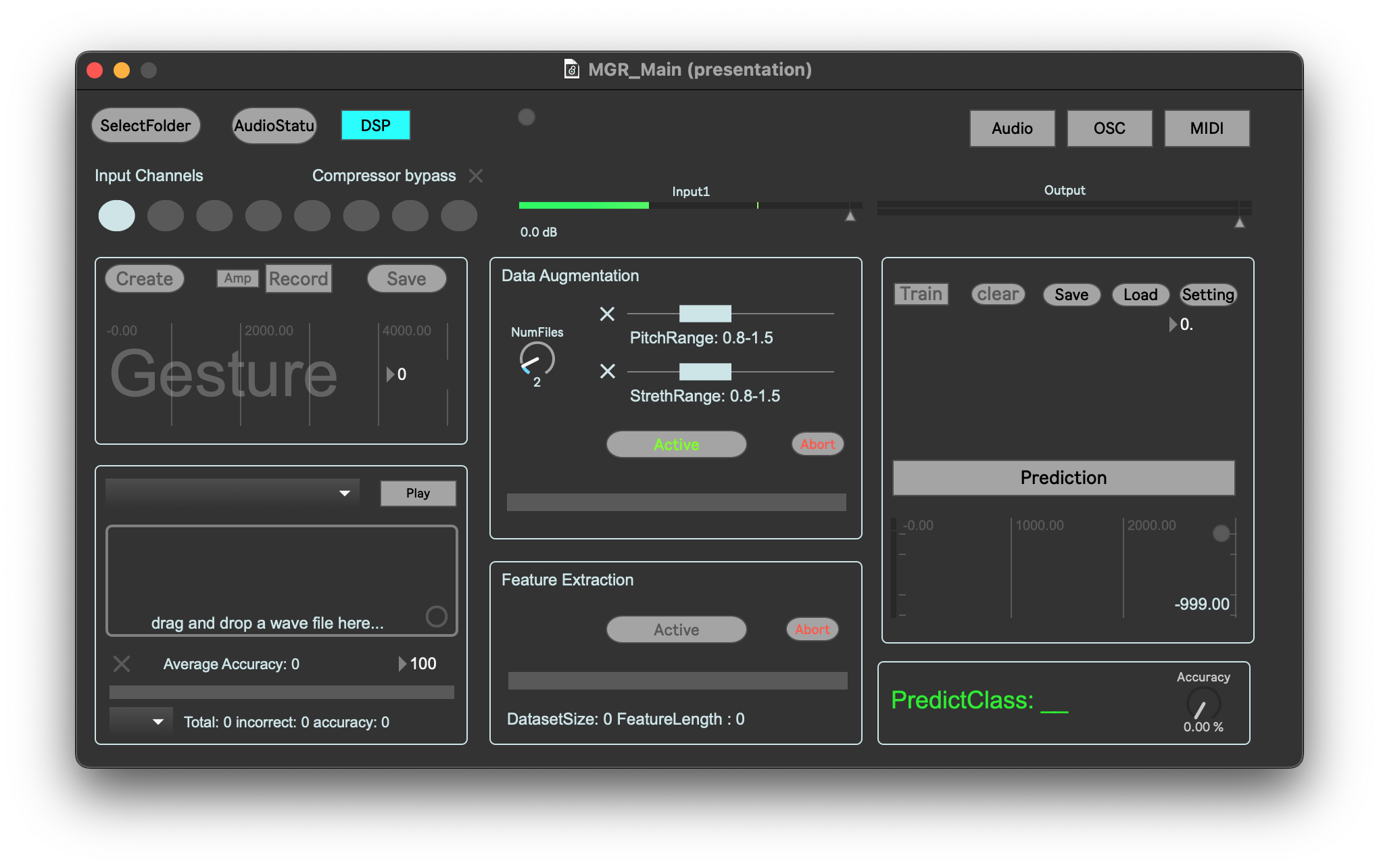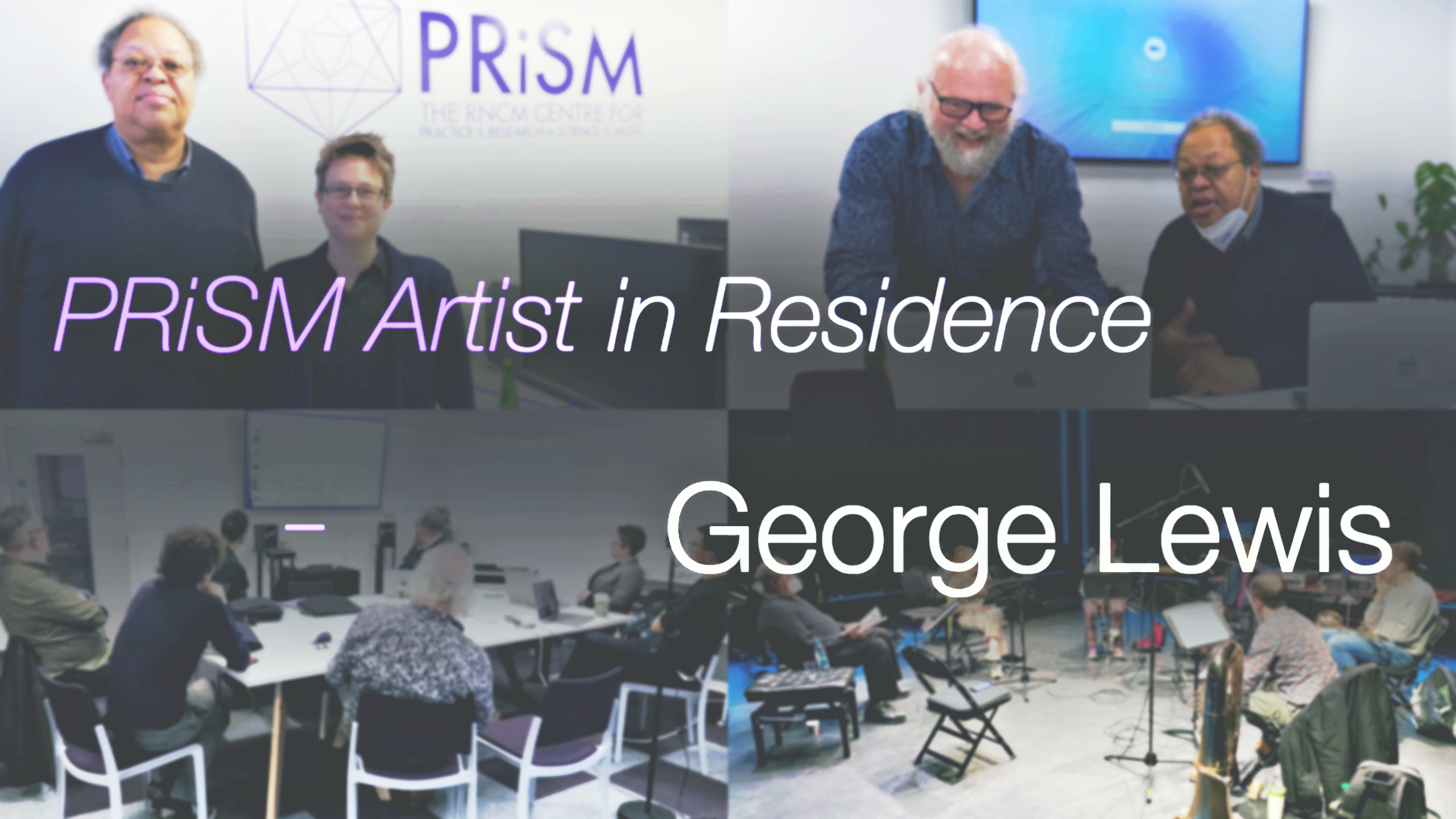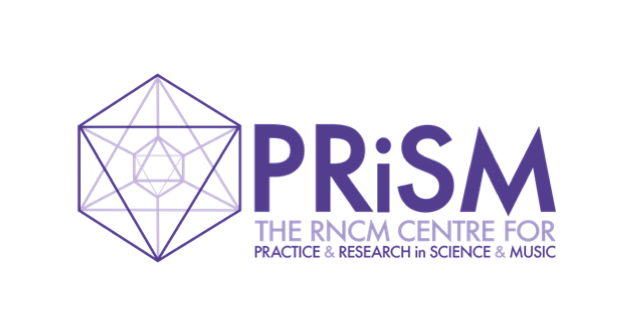PRiSM Musical Audio Gesture Recognition (AGR)
PRiSM Musical Audio Gesture Recognition (AGR, or previously Musical Gesture Recognition) is a machine-listening interface designed to recognise and classify real-time audio input.
PRiSM AGR research emerged out of an artistic residency of composer Professor George Lewis (Edwin H. Case Professor of American Music, Columbia University), whose RNCM PRiSM commission, Forager, saw him work closely with RNCM staff and student performers in 2022.
The research involved developing and releasing a fully standalone, open-source and open-access AGR toolkit, which allows for preparing and thus creating custom datasets of any musical audio gestures (e.g. an upward glissando) and real-time recognition of these gestures based on live audio input.
The toolkit utilises machine-learning techniques to classify and interpret musical audio gestures, enabling applications in interactive music performance, composition, and more.

PRiSM AGR software toolkit | Main user interface
Following Lewis’ residency in 2022, which resulted in a prototype AGR unit being added to the existing Voyager framework, the development of a fully self-contained AGR system was driven by PRiSM-associated artists collaborating closely with Dr Hongshuo Fan (PRiSM Research Software Engineer 2023-24) and the International Contemporary Ensemble (ICE) based in New York.
The finalised software tool was launched officially through a headline premiere concert on 16 May 2024 at the acclaimed Roulette Intermedium in Brooklyn (and livestreamed to an international audience).
It was also featured in Lewis’ The Reincarnation of Blind Tom (2024) – a double concerto for human Soloist, AI-pianist and orchestra – for SWR Symphonieorchester and Donaueschinger Musiktage that was premiered in Donaueschingen, Germany in October 2024.
Resources
PRiSM Musial Audio Gesture Recognition: Code and Software Packages on Github
Citation
PRiSM Musical Audio Gesture Recognition (AGR) toolkit is open source and free to use under an MIT licence, copyright retained by RNCM PRiSM.
We would ask that the software and funding is referenced in work as follows:
PRiSM Musical Audio Gesture Recognition Toolkit
Led by RNCM PRiSM
Code by Hongshuo Fan
A PRiSM Collaboration with George Lewis, and in partnership with International Contemporary Ensemble (ICE)
Permission is hereby granted, free of charge, to any person obtaining a copy of this software and associated documentation files (the “Software”), to deal in the Software without restriction, including without limitation the rights to use, copy, modify, merge, publish, distribute, sublicense, and/or sell copies of the Software, and to permit persons to whom the Software is furnished to do so, subject to the following conditions:
The above copyright notice and this permission notice shall be included in all copies or substantial portions of the Software.
THE SOFTWARE IS PROVIDED “AS IS”, WITHOUT WARRANTY OF ANY KIND, EXPRESS OR IMPLIED, INCLUDING BUT NOT LIMITED TO THE WARRANTIES OF MERCHANTABILITY, FITNESS FOR A PARTICULAR PURPOSE AND NONINFRINGEMENT. IN NO EVENT SHALL THE AUTHORS OR COPYRIGHT HOLDERS BE LIABLE FOR ANY CLAIM, DAMAGES OR OTHER LIABILITY, WHETHER IN AN ACTION OF CONTRACT, TORT OR OTHERWISE, ARISING FROM, OUT OF OR IN CONNECTION WITH THE SOFTWARE OR THE USE OR OTHER DEALINGS IN THE SOFTWARE.
Other Relevant PRiSM Media
This work is supported by PRiSM, the Centre for Practice & Research in Science & Music at the Royal Northern College of Music, funded by the Research England fund Expanding Excellence in England (E3).




